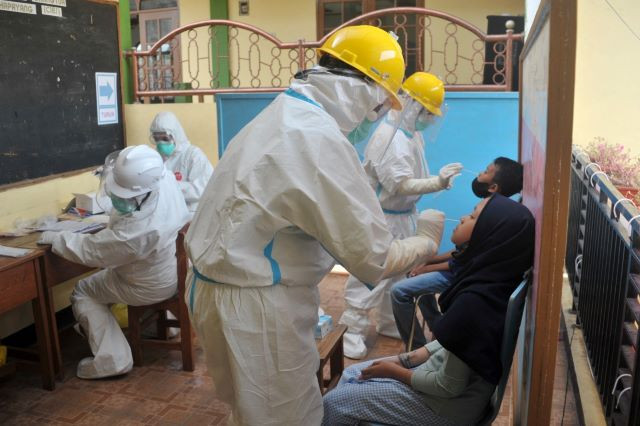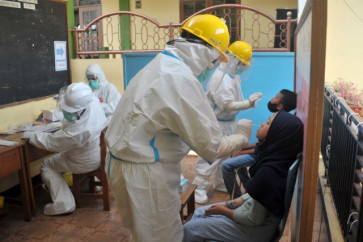Popular Reads
Top Results
Can't find what you're looking for?
View all search resultsPopular Reads
Top Results
Can't find what you're looking for?
View all search resultsLessons (not) learned: A critical reflection on the COVID-19 pandemic
The "lucky” ones – or the more privileged among us – may look back into the first two years of the pandemic through our social media feeds with a sense of bittersweet nostalgia. How can we forget the first days of remote working and studying from home, or that moment when we could only wave at our relatives during religious holidays?
Change text size
Gift Premium Articles
to Anyone
T
he pandemic is over. It has been more than four years since Indonesia officially announced its first cases of COVID-19. Yet, questions linger about whether we as a community have become more prepared to deal with a crippling global health crisis.
The "lucky” ones – or the more privileged among us – may look back into the first two years of the pandemic through our social media feeds with a sense of bittersweet nostalgia. How can we forget the first days of remote working and studying from home, or that moment when we could only wave at our relatives during religious holidays?
But for others, particularly those on the margins, the pandemic was a traumatic moment that turned lives upside down. Some lost their loved ones to the virus while others lost their jobs and were thrown into precarious financial positions. It was the moment when they realized how the prevailing social, political and economic order failed to protect them during one of the most challenging times in history.
A collection of scholarly articles released by the University of Indonesia’s Asia Research Center (ARC) titled Mediatisasi Politik pada Masa Pandemi di Indonesia yang Neoliberal (The Mediatization of Politics during Pandemics in Neoliberal Indonesia) is an attempt from Indonesian scholars from different fields to provide a critical evaluation of what went wrong and what went right during that critical period. It does so by examining how the politics of pandemics — or “social practices” conducted by the elite and the grassroots during the crisis — was mediatized in digital settings.
The book, published by Kepustakaan Populer Gramedia (KPG), is worth a read not only for academics, but for anyone that wishes to understand the structural and material factors that not only deeply influenced state policies to address the crisis, but also shaped how people perceived and responded to the policies.
Pandemics and neoliberalism
Writing from the tradition of critical social sciences, which consider power relationships an important factor in scholarly analysis, ARC deputy director Diatyka Widya Pertama Yasih, who coedited the book, asserts that the authors aim to critically evaluate the impacts of neoliberal policies on Indonesian society during the health crisis. Neoliberalism here refers to a set of political economic practices that are based on the idea that our well-being could only be improved within “an institutional framework characterized by strong private property rights, free market and free trade” (Harvey, 2005, p. 2).


















